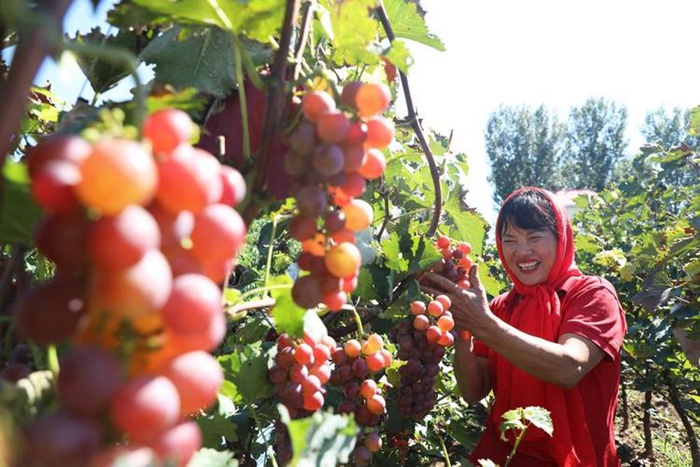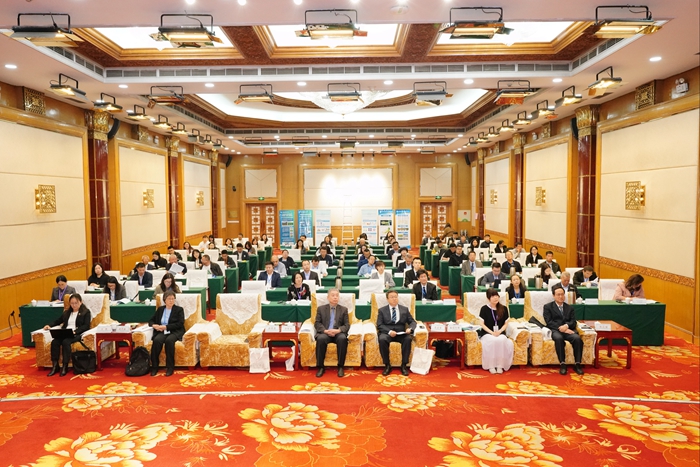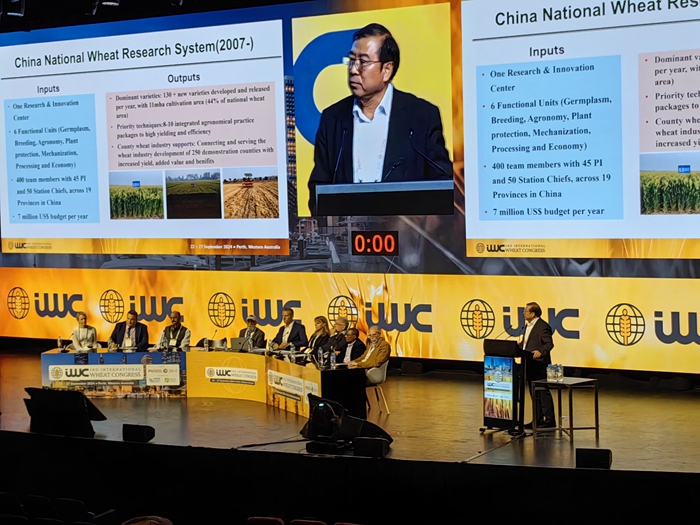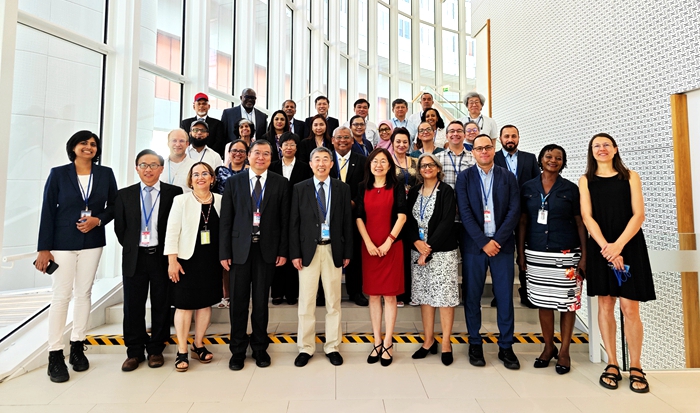[Xinhua] Chinese scientists use AI to accelerate precise grape breeding

SHENZHEN, Nov. 4 (Xinhua) -- It usually takes three years for a grape seed to germinate and bear fruit, and much longer to cultivate an excellent grape variety. Scientists have been searching for fast and simple methods to design and breed satisfactory new grape varieties.
A research team led by Zhou Yongfeng, a researcher from the Agricultural Genomics Institute at Shenzhen of the Chinese Academy of Agricultural Sciences, has discovered a new method of grape breeding using artificial intelligence (AI), which significantly reduces the breeding cycle and achieves a high prediction accuracy of 85 percent. Compared to traditional methods, breeding efficiency can be quadrupled via this new approach.
"This research is expected to achieve precise breeding design for grapes, accelerate grape variety innovation, and provide a reference for breeding other perennial crops," Zhou said.
The related research was published on Monday in the journal Nature Genetics.
In order to achieve precise design and breeding, scientists need to analyze massive amounts of comprehensive and accurate genomic and genetic data. Zhou's team has been focusing on grape design and breeding since 2015. In 2023, they released the first complete grape genome map. Building upon this achievement, the team has since also constructed the first grape pan-genome, known as Grapepan v1.0.
In order to further investigate the correlation between grape genes and traits, the team selected more than 400 representative varieties from nearly 10,000 types of grapes. Over the course of two years, they conducted investigations of 29 agronomic traits, including cluster size, grape berry metabolite content, berry size and fruit skin color. As a result, they managed to construct genetic and trait maps for grapes.
How to dig deeper into such genomic data to guide breeding? The team decided to try to answer this question by introducing machine learning, developing a predictive model to make early predictions and selections based on scoring -- thereby guiding and optimizing breeding strategies.
"With this model, breeders can assess the genetic potential of a large number of breeding materials quickly and accurately, enabling them to better select superior varieties. This breeding technology can predict the characteristics of grape seedlings at an early stage, allowing for the early removal of unsuitable seedlings and reducing unnecessary labor and investment costs," Zhou said.
Currently, this research has obtained approval for six national invention patents and has applied for one international patent.
-
 Nov 07, 2024The Policy and Technology Exchange Meeting of Deepening Environmental Cooperation on Dust and Sand Storm Control in Northeast Asia for Green and Sustainable Development co-organized by Institute of Grassland Research, CAAS successfully held in Hohhot
Nov 07, 2024The Policy and Technology Exchange Meeting of Deepening Environmental Cooperation on Dust and Sand Storm Control in Northeast Asia for Green and Sustainable Development co-organized by Institute of Grassland Research, CAAS successfully held in Hohhot -
 Nov 07, 2024IAED-CAAS delegation visits four Central-Asian countries for scientific cooperation
Nov 07, 2024IAED-CAAS delegation visits four Central-Asian countries for scientific cooperation -
 Nov 06, 2024Experts from ICS Participated in the 3rd IWC
Nov 06, 2024Experts from ICS Participated in the 3rd IWC -
 Oct 24, 2024Prof. Luxiang Liu Renewed His Term as the Chairman of the Mutation Breeding Network (MBN)
Oct 24, 2024Prof. Luxiang Liu Renewed His Term as the Chairman of the Mutation Breeding Network (MBN) -
 Oct 23, 2024IPPCAAS Wins the 2024 FAO Achievement Award
Oct 23, 2024IPPCAAS Wins the 2024 FAO Achievement Award
